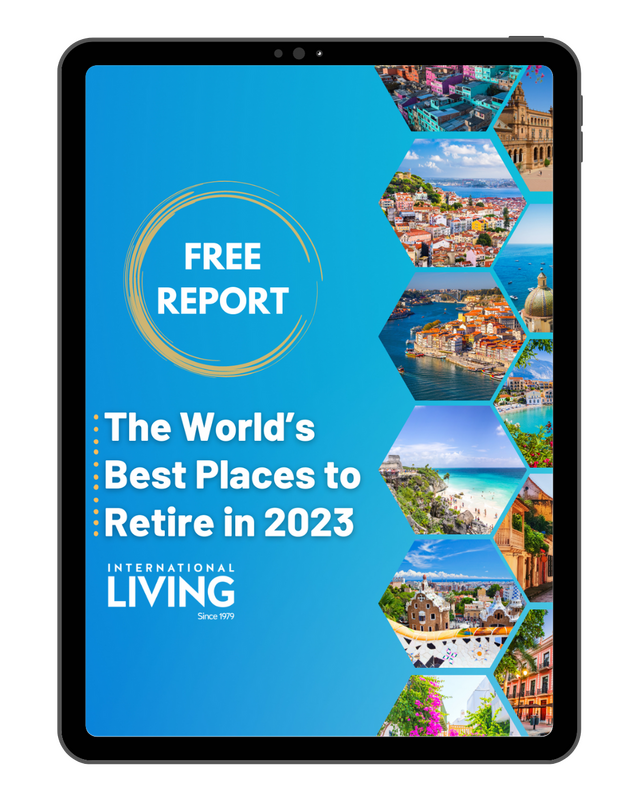After living overseas for about 20 years, I’ve found there are pros and cons to every place and lifestyle. But now that I’m back abroad after spending the pandemic years in the U.S., I remember how many little things I appreciate about life in different countries. Can you relate to any of these?
1. Not Having to Drive
The public transportation system in the U.S. leaves something to be desired. Being from the small town of Vero Beach, Florida, I was used to getting everywhere by car. I didn’t step foot into a subway system until I visited New York City as a teenager. And I was in my mid-twenties when I used public transportation in Europe for the first time (in Budapest, Hungary).
Are you interested in retiring abroad? Yes | Not Sure Yet
Being in the U.K. at the moment, I’m thoroughly enjoying being able to zip around Manchester by metro and make my way around England by bus or train. Last weekend, I took a trip to London by train, and it couldn’t have been easier or more comfortable! I wish there were better public transportation options in the U.S., as it’s an integral part of a high standard of living in any country. I’m happy to be car- and car insurance-free at the moment.
2. No Pharma Ads
I can’t recall when I began noticing pharmaceutical commercials in the U.S., which means it’s something that citizens have been conditioned to see for a long time. It’s only when I’m abroad that I notice the absence of pharmaceutical ads, and it’s something I appreciate.
Within the E.U., “advertising to the general public of medicinal products which are only available on medical prescription” is prohibited, which is why you won’t see such ads on TV.
According to reporting by the Guardian newspaper, members of the European Parliament rejected attempts by drug companies to allow advertising in 2022.
A spokesperson warned against “American-style mass advertising on television of ‘wonder drugs,'” noting that “medicines are like no other product. The aim must not be to maximise sales but to ensure that the product is used appropriately.”
I agree.
3. Food Options Other Than Chain Fast Food
A mainstay of growing up in the U.S. has always been the presence of fast food restaurants. Some of my earliest memories are of attending birthday parties at McDonald’s or going through a drive-thru for dinner. Although the health risks of fast food are well-known today, the quantity of such restaurants in America continues to increase.
While you can find global fast food chains in almost any country, you can also find more diversity in food choices. Sure, you can still grab a burger, fries, or pizza, but there seem to be more bakeries, cafés, and privately-owned restaurants comparatively.
For example, there are 902 McDonalds in my home state of Florida compared with 1,207 in all of the U.K.
Food is an important part of any culture and I value being able to enjoy local cuisine while abroad.
4. Slower Pace of Life
It’s no secret that the U.S. is associated with capitalism, individual achievement, and the American Dream. While such values have driven the country’s history of economic growth and led to its status as a leader on the global stage, they can also be at odds with a healthy and balanced lifestyle.
I never perceive the same type of pressure to “keep up with the Joneses” when living abroad.
A slower pace of life is linked to better well-being, and I feel that’s easier to attain when I’m outside of the U.S.
Of course, you’ll find a slower pace of life on the beaches of Brazil or Mexico compared to the streets of London or Frankfurt. Still, overall, I feel that the lifestyle in Europe is more relaxed compared to the U.S. Seeing people relaxing in parks and cafés makes me feel less hurried. Labor laws that provide people with more vacation days and time off and knowing that shops close earlier or on weekends also contribute.
5. Cost of Living
When I first lived abroad as a student in 2002-2003, I was surprised to find that my living expenses in Costa Rica and Australia were less than my college lifestyle in Florida. Since then, compared to the U.S., I’ve almost always saved money by living abroad.
In some cases, living in cities like Tokyo, London, or Hong Kong, I’ll spend the same amount. But overall, the cost of rent, food, and entertainment is typically lower outside of the U.S., which is among the top ten most expensive countries worldwide.
For more living abroad tips, subscribe to Kristin’s YouTube channel.

Editor’s Note: For 20 years, Kristin Wilson has lived, worked, and traveled abroad in 60 countries. She’s used her unique expertise and on-the-ground insights to help thousands settle into a new, better life overseas.
Now she’s joined our IL team to provide personalized guidance that will help you find your own just-right place on the planet and get there with ease and confidence.

Get Your Free Report on the World’s Best Places to Retire:
Learn more about the best places in the world to retire in our daily postcard e-letter.
Simply enter your email address below to sign up for our free daily postcards and we’ll also send you a FREE report on The World’s Top 10 Retirement Havens, plus access to over 10 more free reports. Our gift to you, on our favorite destinations.
Related Articles
Video: 12 Tips for Choosing a Destination
8 Steps to Take Before Moving Overseas
Video: 8 Moving Overseas Mistakes to Avoid
Upcoming Conferences
The Only 2024 Fast Track Panama Conference
If your dream retirement involves stunning beaches… lush green mountains… a warm climate with no hurricanes… first-rate healthcare… incredible value for money (a couple can live well on $2,200 a month)… and the World’s #1 Retiree Discount Program…
Join our Panama experts and expats in February and discover why Panama could be your perfect paradise.
REGISTER NOW, SEATS LIMITED: EARLY BIRD DISCOUNT HERE



.png)